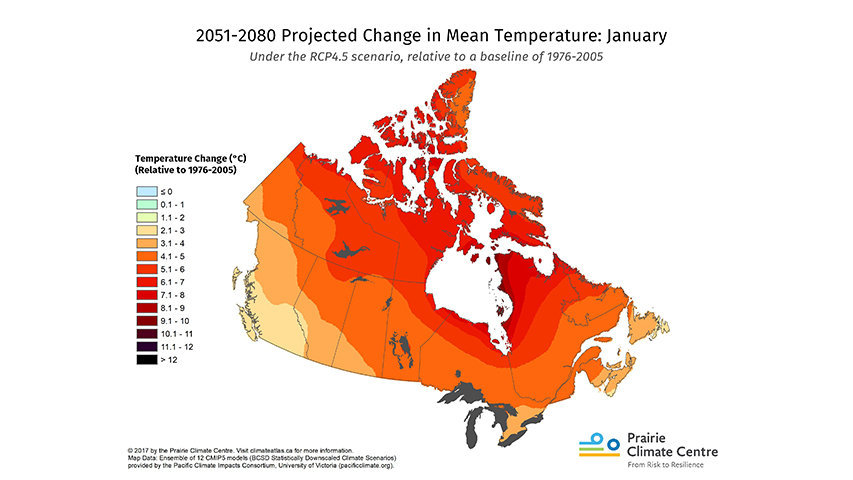
New Interactive Tool Brings Climate Change Closer to Home
by Yash Saboo April 9 2018, 4:05 pm Estimated Reading Time: 2 mins, 36 secsWouldn't it be perfect to have an interactive tool that could teach you more about climate change and how it is affecting the area you live in? Canada has an answer for this.
The Climate Atlas of Canada is an interactive tool for citizens, researchers, businesses, and community and political leaders to learn about climate change in Canada. It combines climate science, mapping and storytelling to bring the global issue of climate change closer to home, and is designed to inspire local, regional, and national action and solutions.
From Toronto to Regina to Victoria and beyond, the tool allows users to explore what unprecedented warming could mean for their towns, cities or regions in the decades ahead. From an increase in searing hot days and warmer nights to more precipitation and fewer days below zero, it shows no region will remain untouched as Canada’s climate changes.

The Atlas is a unique tool in the world. In addition to the launch of the Atlas, the Prairie Climate Centre released a series of reports summarizing what might be expected for Canada’s major cities if we continue to follow a high carbon scenario. For instance, the reports show cities that already experience hot summers will face large increases in both daytime and nighttime temperatures, while many historically cooler cities will have to start coping with dangerous heat for the first time. Such changes would have significant implications for the health and well-being of residents, for city infrastructure and for local economies.
The Government of Canada is committed to helping Canadians understand and adapt to the ways climate change is affecting our environment, communities, and economy. Investing in climate adaptation is essential as we work to reduce carbon pollution and ensure a safe and prosperous future for children and grandchildren. To increase awareness of the impacts of climate change and encourage action, the Government of Canada provided a $1 million contribution to the Prairie Climate Centre’s ongoing development of the Climate Atlas of Canada. The Province of Manitoba, the Social Sciences and Humanities Research Council, and Great-West Life have also contributed to the development of the Atlas. It aims to inspire local, regional and national acts that will support Canada’s shift from climate risk to resilience.
The Prairie Climate Centre team, at the University of Winnipeg, is made up of climate scientists, social science researchers, filmmakers, and communication specialists. Their goal is to inspire citizens’ participation, to support communities, and help Canadian society move from risk to resilience.
For a decade, Dr. Ian Mauro has been developing climate change documentaries across Canada, which involve interviews with and insights from over 300 Canadians from all walks of life. The Climate Atlas of Canada is a platform that mobilizes these perspectives and links them with the best available climate science.
For over thirty years, Dr. Danny Blair has been one of Western Canada’s leading climatologists and has worked for his entire career to create awareness regarding climate change as a pressing issue facing society.
Explore the Atlas today at www.climateatlas.ca




-173X130.jpg)
-173X130.jpg)
-173X130.jpg)
-173X130.jpg)
_(1)-173X130.jpg)

-173X130.jpg)
